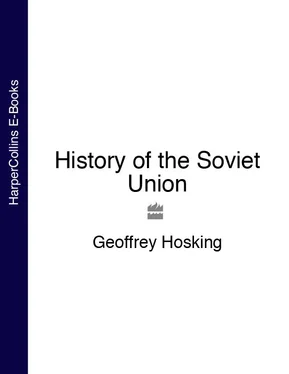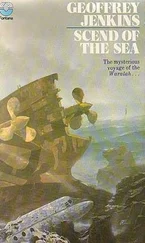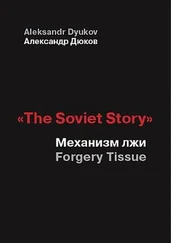Altogether, then, NEP was the party’s creation, but it also faced the party with unforeseen and bewildering dilemmas. During the last couple of years of his life, Lenin began to reflect on these. He suffered a stroke in May 1922, which left him partly paralysed, and another in March 1923, which deprived him of speech, but he did not die till January 1924. Between the first two strokes, at least, he remained politically partly active. For the first time since October 1917 he was able to stand back to some extent from the immediate pressures of decision-making and come to some conclusions about what he and his party had done. His reflections were ambivalent, and his writings of these months sometimes betray a note of uncertainty which had never been present earlier.
On the credit side was the fact that the Bolsheviks had seized power and held it, in spite of grave emergencies. In almost all respects, however, the premises on which Lenin had urged an uprising in October 1917 had proved false. No international revolution had taken place: on the contrary, the revolution had remained confined to Russia, which as a result was now surrounded by suspicious or hostile states and was rapidly resuming the outward forms of the old tsarist empire. The proletariat and poorer peasantry had not proved capable of exercising any kind of class dictatorship: the proletariat was dispersed and impoverished, and the poorer peasants, as a result of the Land Decree, had more or less merged with the rest of the peasantry. Ordinary working people had never had a chance to try their hand at administration: in their place, a growing host of appointed officials (some of them inherited from the old regime) was running the country, especially in the localities. The Bolsheviks had seized power with few definite ideas about how they would govern, and such ideas as they had possessed had been swept away by civil war, deindustrialization and famine. Lenin spent the rest of his life grappling with these unintended consequences of his own revolution, and after his death his successors quarrelled and then split over the heritage. Utopia had failed. The party now divided between those who wanted to restore utopia by coercion (the left), and those who were inclined tacitly to recognize its failure and try to come to terms with the new reality (the right).
For all that he might talk of the ‘dictatorship of the proletariat’, Lenin recognized the actual situation and was deeply worried by it. ‘Those who get jobs in factories now’, he commented at the Eleventh Party Congress in March 1922, ‘are usually not real proletarians, but just people who happen to turn up [ vsyachesky sluchainy element ].’ ‘Marx’, he added, ‘was not writing about present-day Russia.’ Alexander Shlyapnikov, a leader of the Workers’ Opposition, taunted him from his seat: ‘Permit me to congratulate you on being the vanguard of a non-existent class.’ This put the matter in a nutshell. Lacking a secure social base, the party could not direct NEP as it wanted to. The economy was like a car not being driven by the man who thought he was at the steering wheel: ‘Speculators, private capitalists, goodness knows who is actually driving the car … but it often goes not at all in the direction imagined by the person at the wheel.’
This feeling of being out of control was shared by many at the congress. Lenin attributed it partly to what he called cultural factors. Since the Communists would now have to play a more active role than they had envisaged in the construction of a new economy, it was vital that they should possess the basic skills to do this. In practice, he warned, that was not at all the case. Capitalists and private traders were usually more competent. Communist officials often lacked ‘culture’–by which he meant education, tact, honesty, public spirit and efficiency–and so, faute de mieux , they were being swamped by the bad old ways of the pre-revolutionary regime. ‘If we take Moscow–4700 responsible Communists–and then take the whole contraption of bureaucracy there. Who is directing whom? I very much doubt whether one can say that the Communists are doing the directing. … The culture [of the bureaucrats] is wretched and contemptible, but still it is higher than ours.’
Although he could see some problems clearly enough, Lenin was unable to devise any solutions to them. In some ways, he thought the most important thing to do was to ensure that the best individuals were in charge–people of proven ability and probity. In his Testament he reflected on the characteristics of his possible successors from that point of view–and, significantly, he found them all wanting. He expressed particular misgivings about Stalin, on the grounds that he might not be able to use his ‘unlimited authority’ as party General Secretary ‘with sufficient caution’. He later added in an appendix: ‘Stalin is too rude, and this defect, though quite tolerable in our midst and in dealings among us Communists, becomes intolerable in a General Secretary. That is why I suggest that the comrades think about a way to remove Stalin from that post …’ He also proposed administrative reorganizations: enlarging the Workers’ and Peasants’ Inspectorate (which had inherited the powers of the tsarist auditor-general) and merging it with the Party Control Commission (a kind of party inspectorate), so that the more capable and trustworthy people at the top could better monitor what was going on lower down. Actually that was a recipe for compounding the problems of overcentralized control, especially in view of the fact that the Workers’ and Peasants’ Inspectorate was headed by Stalin.
Lenin died before he was able to try to effect any of the changes he proposed, and the party leaders kept his unflattering personal comments secret from the rank and file. With Lenin’s death, the nature of politics and public life changed quite considerably. Lenin had always been confident that he was right in his ideas, but he acted by persuasion: until 1921 he had never tried to silence debate within the party, and even thereafter he often tolerated it in practice. Certainly he had never demanded consecrated status for his own ideas. Now, however, a very real change began to take place. Perhaps it is significant that two members of the commission in charge of Lenin’s funeral ceremony, Anatoly Lunacharsky and Leonid Krasin; were past adherents of ‘God-building’, the pre-revolutionary intellectual tendency which had claimed to be a ‘socialist religion of humanity’, indeed ‘the most religious of all religions’. Its main tenet had been that the proletariat, in creating a new and more humane kind of society, were building a new man, who would cease to alienate himself in illusions about a transcendental God, but instead would fulfil a more genuine earthly religious mission. Lenin had been scathing in his denunciation of this tendency, but, as far as is known, Lunacharsky had never abjured it, while Krasin had been a sympathizer of Bogdanov, who as the philosopher of Proletkult (see below, page 180) tried to revive God-building in a new form after the revolution.
At any rate, the form of ceremony chosen for Lenin had strong traditional religious overtones, especially the decision to embalm his body and preserve it for public display in a mausoleum on Red Square, in the middle of Moscow. This was comparable with the Orthodox cult of ‘relics’ of saints. But it was also different: Orthodoxy had never preserved a whole body. This was, in fact, a religious gesture of a new kind. Stalin approved of the decision to embalm Lenin–indeed he may have initiated it–and although he was never a God-builder, he had a shrewd idea of the value of religious symbolism to the state, derived perhaps from his youthful study in the Tiflis seminary. In accord with the new spirit, at a session of the Congress of Soviets on the eve of the funeral, he carefully enumerated Lenin’s ‘commandments’ and pledged himself to fulfil them, as if consciously assuming the mantle of disciple and heir.
Читать дальше












